Chemistry
Links:

Dr.Subhakanta Dash, Ph.D,
HOD, Chemistry
CHEMISTRY
About the Department
Welcome to the Department of Chemistry. The Department of Chemistry, established in the year 1999, has been imparting teaching and training in emerging fields of Chemistry and Chemical sciences. Currently with three well qualified faculty members, the department is actively pursuing teaching as well as research in several frontier areas of chemical sciences. The main focus of the department is to foster world-class and outstanding teaching and research activities and to train various levels of chemistry aspirants. The faculty members and the supporting staff strive to work on generating skillful human resources, and the laboratory training associated with chemical knowledge of modern-day research areas both in the experimental and theoretical fields. Such training programs could help students to secure potential jobs both in the industry and academic sectors. The Department of Chemistry also organizes conference and workshops in the field of Chemical Sciences.
Vision
The Chemistry Department prepares students for a diverse and changing world. We strive to contribute to a chemically literate society through teaching (with classrooms, labs, and research).
Mission
Provide comprehensive specialist expertise in the domain of Chemistry and to inspire, motivate the next generation graduates to effectively contribute to the advancement of society with integrity and commitment.




Course Outcomes of Chemistry (2023-2024)
1. To demonstrate and realise the trend in various periodic properties associated with different elements present in different groups and periods of modern periodic table.
2.To acquire the knowledge of free energy concept for the thermodynamics associatedwith chemical reactions and equilibriums..
3.To analyze and implement the concepts of spectroscopic techniques for identification of various organic and inorganic compounds..
4.To evaluate and visualize the concept of configurations and conformations of various organic compounds.
5.To assess the generation, reaction and identification of intermediates involved during organic reactions and their applications in different organic reaction mechanisms.
Course Outcomes of Chemistry: (Old Syllabus)
1.Understand the basics of quantum mechanical concepts and spectroscopy.
2.Understand the concept of Phase, component and degree of freedom in Phase rule.
3.Analyse the quantitative aspects of fuel combustion and the mechanism of corrosion
4.Preliminary understanding on introductory idea about nano materials.
A List of Experiments:-
1. Determination of the alkalinity in the given water sample.
2. Determination of the temporary and permanent hardness in the given water sample by complexometric titration using EDTA as standard solution.
3. Determination of amount of available chlorine in bleaching powder.
4. Standardization of potassium permanganate using sodium oxalate
5. Determination of amount of ferrous iron present in Mohr’s salt.
6. Determination of the rate constant of a chemical reaction.
7. Estimation of calcium in Limestone
8. Determination of dissolved oxygen in water sample.
9. Determination of the partition coefficient of a chemical between two immiscible liquids.
10. Determination of the strength of given HCl solution by titrating it against NaOH solutionusing p H meter.
11. Conduct metric titration of strong acid and strong base.
12. Determination of viscosity of lubricating oil by Redwood viscometer.
13. Determination of flash point of a given oil by Pensky-Martens flash point apparatus.
14. To find out the concentration of a given potassium permanganate solution spectrophotometric method.
15. Synthesis of Aspirin/Paracetamol
Research Work
The Department of Chemistry at Synergy Institute of Engineering and Technology, Dhenkanal is actively involved in R&D activities such as paper publication, project application to various funding organisations (DST/SERB/DBT, etc.), and seminar/conference organization. The following research work outlined below is carried out.
1. Holistic utilization of solid waste viz. fly ash, redmud, iron ore tailing, rice husk ash, coir pith, ferrochrome slag, gypsum, paper sludge etc.
2. Utilization of Industrial gypsum to produce various valuable products viz.aggregate, brick and board.
3. Fabrication of particle board, coir briquette, coir lawn and activated carbon from coir pith waste.
4. Developed fly ash based aggregate, brick,Tiles, pavement block ,fly ash sand, transparent concrete etc.
5. Fabrication of fly ash based porous filter candle and Zeolite for waste water treatment and fly ash disposal Techniques in Solid and Slurry form
6. Fabrication of porous concrete for ground water rechargement, noise pollution control, waste water treatment, neutralization of industrial acidic water and removal of heavy metal.
7. Granulation of Raw Material, viz. fly ash pellet, redmud pellet, Iron ore pellet, and chromite pellets
8. Fly ash Pelletization techniques by Cold bonding, Autoclaving, and Sintering process. Removal of fluoride, arsenic ,hexavalent chromium (Cr-VI) by perfect modified fly ash based Zeolite and composite material.
9. Fabrication of various types of Concrete structure like Porous Concrete, Conventional concrete, Foam concrete, Transparent concrete and bending concrete.
10. Construction of geopolymeriserd no-fine concrete for neutralization of industrial acidic water.
11. Utilization of Nanomaterial for waste water treatment.
Instrument Facilities
The Chemistry Lab is well equipped with advanced instruments and modern facilities for experiment & research purposes.
→ Electric oven
→ Muffle furnace
→ Flash point apparatus
→ Red-wood viscometer
→ Digital pH meter
→ Melting point apparatus
→ Spectrophotometer
→ Orsat apparatus
→ Dhona balance
→ Hot-plate
→ Water-bath
→ Distillation apparatus
→ Physical balance & chemical balance
→ New digital pH meter
→ Magnetic Stirrer with Hot Plate
→ Digital Balance
→ Conductivity Meter
→ Potentiometer
Department Library
The Department has a good stock of textbooks and reference books for use by the students.
Seminar/Workshop/Conference
→1. National Seminar on Treatment and Utilization Of Industrial/Mining waste for Sustainable Environment (TUIMW-2020), 24th February-2020.
→2.National Seminar on Recent Trends of Nano Materials for futuristic application ( NSRTNMFA-2018), 31st January 2018. " National Seminar on Nanotechnology and its applications, 17th-18th July ,2009
→3. Virtual Webinar conducted on Metal organic framework and its application on January-25, 2020
→4.Virtual Webinar conducted on Synthesis and characterization of Nanostructured Material on July-24, 2020.
→5. Virtual Webinar conducted on Aluminium – A strategic material on August-27, 2020
→6. Virtual Webinar conducted on Solid waste segregation and Management for cleaner Environment January-18, 2021.




